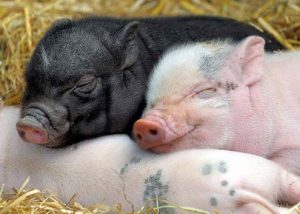For many people, going vegan has turned into a bigger ordeal than it should be. Nowadays, one must “come out” as vegan to their family and friends. Some people are curious about the decision, while others seem to think it is a poor decision. No matter what the intentions are, vegans deal with a lot of questions from their peers. Here are some responses to the most commonly asked questions!
Where do you get your protein?
Getting enough protein is the least of a vegan’s concerns. Protein is found in nuts, legumes, soy, quinoa, non-dairy milk, and even vegetables. One cup of cooked spinach has approximately 7 grams of protein – about the same as an egg! Many people think we need far more protein than we actually do. Adult women are recommended to consume around 46 grams of protein daily, and men should consume around 56 grams daily. Given these numbers, it is not very difficult to achieve these goals on a vegan diet. Additionally, a “protein deficiency” isn’t even a thing. Nobody has ever been hospitalized due to “not enough protein.”
But it’s the circle of life!
Humans quit being a part of the natural circle of life when we started using guns for hunting. If a person were locked in an empty room with a lion, not one person would claim we are at the top of the food chain. We do not possess the teeth needed to shred meat as carnivores do, nor do our digestive systems handle meat very well. The fact that we must cook meat before eating it shows that we are different from carnivores and omnivores. Finally, mass producing billions of animals in slaughterhouses is far from the “circle of life.”
Isn’t vegan food expensive?
Some vegan food is expensive, just how some animal products are expensive. A vegan diet consists mostly of beans, nuts, rice, fruits, and vegetables. These are some of the cheapest items in the world, and many in poverty actually survive off beans and rice. There are many guides on the internet detailing how to eat vegan on $5, $3, and even $1 a day. Sure, some fancy fake meats get a little expensive sometimes, however it is no more expensive than the usual burger or chicken breast one is used to buying.
Cows need to be milked, we are actually helping them.
Yes, cows need to be milked, and their baby needs that milk to grow. Calves are pulled away from their mother sometimes instantly. The most common milking methods today utilize devices attached to cows’ udders, which can be painful or ineffective. We do not need to step in and help cows anymore than we would for a dog, cat, or any other mammal.
I only eat free-range anyway.
Free-range is certainly better than a typical slaughterhouse, although it is not much different. Animals are not happily frolicking through the grass as one would like to believe. The USDA has not even specified the amount of grass or the amount of time spent outside required to label a product as free-range. Male chicks are typically slaughtered immediately upon hatching, as there is no use for them in the dairy industry. The chicks are typically ground up alive, or tossed away in a dumpster or garbage bag. Even in spacious conditions, hens are bred to produce eggs nonstop for their entire lives. They are typically slaughtered halfway through their normal lifespan, due to the decrease of egg yield as they age. Finally, the term free-range or cage-free can nearly double the profits for a farmer, providing incentive to produce as many as possible in less than kind conditions.
The questions about veganism are endless. I will personally only tell a person so much information, and then to do their own research. If someone is genuinely that curious about how vegans stay healthy, they can find out for themselves. Most people are just curious, and I love being able to change someone’s mind about something they once felt negatively towards. Are there questions you are not sure how to respond to? Leave them in a comment and I will try to help!

